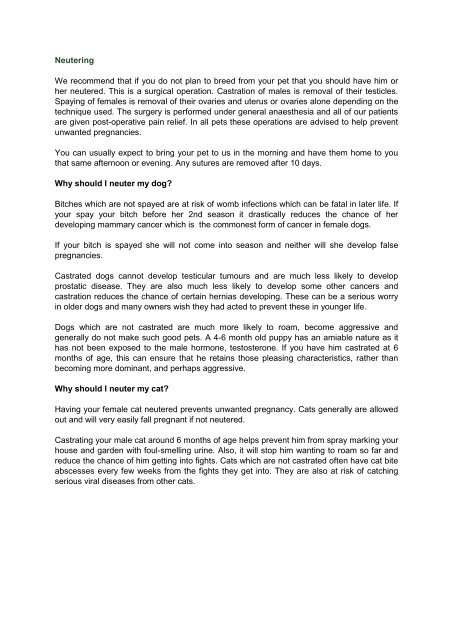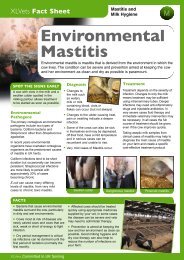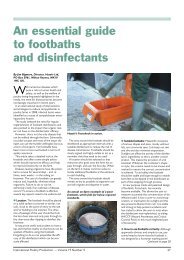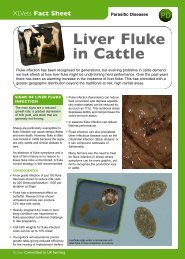Neutering (PDF) - Minster Vets
Neutering (PDF) - Minster Vets
Neutering (PDF) - Minster Vets
Create successful ePaper yourself
Turn your PDF publications into a flip-book with our unique Google optimized e-Paper software.
<strong>Neutering</strong><br />
We recommend that if you do not plan to breed from your pet that you should have him or<br />
her neutered. This is a surgical operation. Castration of males is removal of their testicles.<br />
Spaying of females is removal of their ovaries and uterus or ovaries alone depending on the<br />
technique used. The surgery is performed under general anaesthesia and all of our patients<br />
are given post-operative pain relief. In all pets these operations are advised to help prevent<br />
unwanted pregnancies.<br />
You can usually expect to bring your pet to us in the morning and have them home to you<br />
that same afternoon or evening. Any sutures are removed after 10 days.<br />
Why should I neuter my dog?<br />
Bitches which are not spayed are at risk of womb infections which can be fatal in later life. If<br />
your spay your bitch before her 2nd season it drastically reduces the chance of her<br />
developing mammary cancer which is the commonest form of cancer in female dogs.<br />
If your bitch is spayed she will not come into season and neither will she develop false<br />
pregnancies.<br />
Castrated dogs cannot develop testicular tumours and are much less likely to develop<br />
prostatic disease. They are also much less likely to develop some other cancers and<br />
castration reduces the chance of certain hernias developing. These can be a serious worry<br />
in older dogs and many owners wish they had acted to prevent these in younger life.<br />
Dogs which are not castrated are much more likely to roam, become aggressive and<br />
generally do not make such good pets. A 4-6 month old puppy has an amiable nature as it<br />
has not been exposed to the male hormone, testosterone. If you have him castrated at 6<br />
months of age, this can ensure that he retains those pleasing characteristics, rather than<br />
becoming more dominant, and perhaps aggressive.<br />
Why should I neuter my cat?<br />
Having your female cat neutered prevents unwanted pregnancy. Cats generally are allowed<br />
out and will very easily fall pregnant if not neutered.<br />
Castrating your male cat around 6 months of age helps prevent him from spray marking your<br />
house and garden with foul-smelling urine. Also, it will stop him wanting to roam so far and<br />
reduce the chance of him getting into fights. Cats which are not castrated often have cat bite<br />
abscesses every few weeks from the fights they get into. They are also at risk of catching<br />
serious viral diseases from other cats.
Why should I neuter my rabbit?<br />
Female rabbits should be neutered to prevent tumours of their wombs. Virtually all domestic<br />
rabbits will develop these cancers by the age of 7 or 8 if they are not neutered. Spaying<br />
them also helps reduce behavioural problems due to false pregnancies.<br />
Male rabbits should be castrated to prevent aggression and urine spraying. Also, it reduces<br />
their tendency to mount other pets.<br />
Why should I neuter my reptile?<br />
Many captive female reptiles will develop egg stasis which results in inappetence and can be<br />
fatal. Removal of the oviduct and ovaries prevents this and should be considered if you are<br />
not planning to breed reptiles such as iguanas, bearded dragons and water dragons.<br />
Some captive male lizards will become aggressive to their companions or to their handlers if<br />
not castrated. Castration does not always prevent this but is worth considering as it can<br />
makes them much happier in a captive environment.














